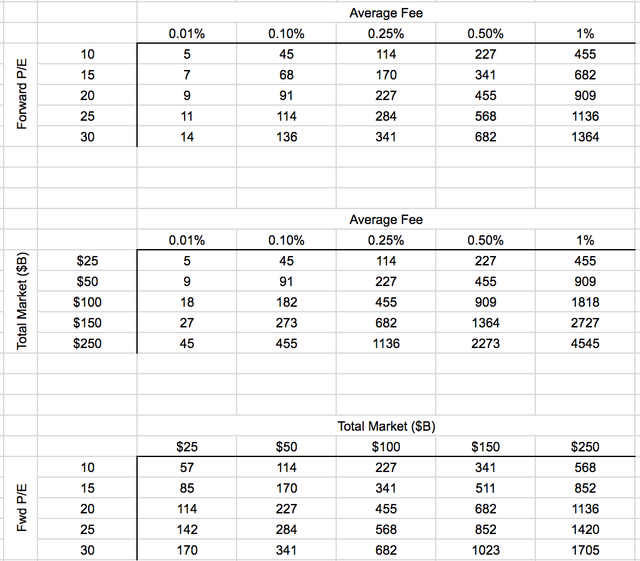Augur - REP Responsibly
What Are Prediction Markets?
Prediction markets allow users to bet on the outcome of different events. A great example of a prediction market is PredictIT https://www.predictit.org/Browse/Featured
As shown below, if users would like to bet that Oprah will run for president in 2020 they would buy "Yes" for $0.26.
Should Oprah run for the presidency, PredictIT would report that Oprah did in fact run and the user would receive $1.00. Should she decide not to run, PredictIt would report that Oprah did not run for the election and the user would lose $0.26.
Note that in this example, PredictIT has to report whether Oprah ran for office or not. This presents two issues:
PredictIT could incorrectly report the outcome (corruption / error)
The government could easily take legal action and force PredictIt to shut down at any time

Augur's Global Decentralized Prediction Market:
Augur's platform has some key differences, most of which prove to be necessary for a thriving global prediction market:
Validation Process: The validation process is completed by holders of Augur's Reputation (REP) token. REP holders vote to decide whether or not an outcome actually happened.
To incentivize correct reporting, users that vote against the decided consensus will lose their REP tokens. In return for reporting, REP token holders are rewarded a "fee" - a percentage of the total volume bet through the platform.
Augur has issued exactly 11,000,000 REP tokens and will not issue any more.
Decentralized: The platform is decentralized, which makes it much more challenging to regulate. This allows for users from all over the globe to participate, even in countries where prediction markets are illegal, such as the US and Japan.
I LOVE DECENTRALIZATION! (http://www.cftc.gov/PressRoom/PressReleases/pr6423-12). (https://www.economist.com/news/asia/21716087-nobody-wants-live-near-gambling-resort-japans-government-has-legalised-casinos-they-are).
Fees: Centralized exchanges currently charge relatively high fees. Fees on Augur are decided by market participants and have a floor of 0.01% (Discord).
Betfair 5.0% of winnings (https://en-betfair.custhelp.com/app/answers/detail/a_id/413/~/exchange%3A-what-is-commission-and-how-is-it-calculated%3F)
PredictIT 10.0% of winnings; 5.0% to withdrawal (https://predictit.freshdesk.com/support/solutions/articles/5000516383-what-are-your-fees-)
Wagering Currency: Users wager with the crytocurrency Ethereum (ETH) instead of USD. Although the hope is eventually that a stable coin will be used (coin that pegs its value at $1.00)
Valuation
While Augur can be used for anything from financial assets to specialized derivative contracts, the base case is that Augur will at least attract the online gambling market. Due to its illegal nature, it's hard to tell the size of the total gaming market - but below are some approximations.
$150B is spent each year wagering on sports betting in the US. (https://www.americangaming.org/newsroom/press-releasess/american-gaming-association-statement-supreme-court%E2%80%99s-decision-invite-0)
Global Online Gambling to Reach $1T by 2021 (https://www.juniperresearch.com/press/press-releases/global-online-gambling-wagers-to-approach-$1-trill)
As mentioned earlier, REP token holders are entitled to a percentage of the total betting volume through the site. So here's a quick and dirty way to value the coin:
Yearly Return = Reporting Fee * Total Volume / 11,000,000
Yearly Return = 0.25% * $50B / 11,000,000 = $11.36.... Call a 20x fwd P/E @ $227.20 / coin vs. current $80/coin.
With that said, I believe that fees will likely stay near 0% (minimum is 0.01%) as Augur first begins. Pending changes to the platform, users will have an incentive to create a market with lower fees - until the fees are near zero.
Conclusion:
The obvious thought is that if the fees are near zero - why hodl the coin? I believe that (similar to AMZN's nonexistent profit margin) token holders will only care about the growth story - how much total volume can we attract to the site? Monetization/Changes to fee structure will be an afterthought. Everyone gets a new panini maker!
Below highlights several investment risks associated with REP. However, this is a situation where there is a need for decentralization, and there is plenty of demand. Additionally, the token structure is favorable as it allows for future cash flow.
Augur has been working on updating its final Whitepaper which should be released this week. Stay tuned! https://www.reddit.com/r/Augur/comments/7ss7y2/augur_white_paper/
Risks:
- Joey Krug - Co-founder of Augur decided in June '17 to join Pantera Capital as Co-Chief Investment Officer. Is he still fully dedicated to the project? He tried to pitch joining the fund as a positive "Once Augur is out, we can even trade on it, which will increase liquidity and be good for everyone." But I'm not sold.
https://www.linkedin.com/in/joeykrug/
Stable Coins - All wagers are exposed to the price of Ethereum. Pretend that I wager $100 of Ethereum to bet for Oprah winning the presidency. Even if she wins, if the price of Ethereum were to go to $0, I would not "win" anything. Thus, there is a need for a "stable" coin. Tether/Base Coin and several other projects are trying to tackle this. Example: https://tether.to/ http://www.getbasecoin.com/
Complexity - Will REP holders all be qualified to answer questions? What if the question is too complicated and token holders cannot figure out what the correct answer is?
Fork - There are some safeguards in place where if > 5% of total users feel that an answer was reported incorrectly, they can stake the REP to fork the code. What if two forks happen at the same time? Will everyone be required to vote during a fork... it gets complicated.
Competition - Gnosis (GNT), is a competitor of Augur. Gnosis, uses 3rd party "Oracles" to decide on the outcome of several events. My view is that this defeats the purpose of a decentralized platform and would make it easier for governments to take legal action against the Oracles. Moreover, over 85% of its outstanding coins remain with the development team (https://coinmarketcap.com/currencies/gnosis-gno/).
Sensitivity Analysis:
For variables not listed the below the model uses - $50B Market Size, 0.25% fee, 20x Fwd P/E
